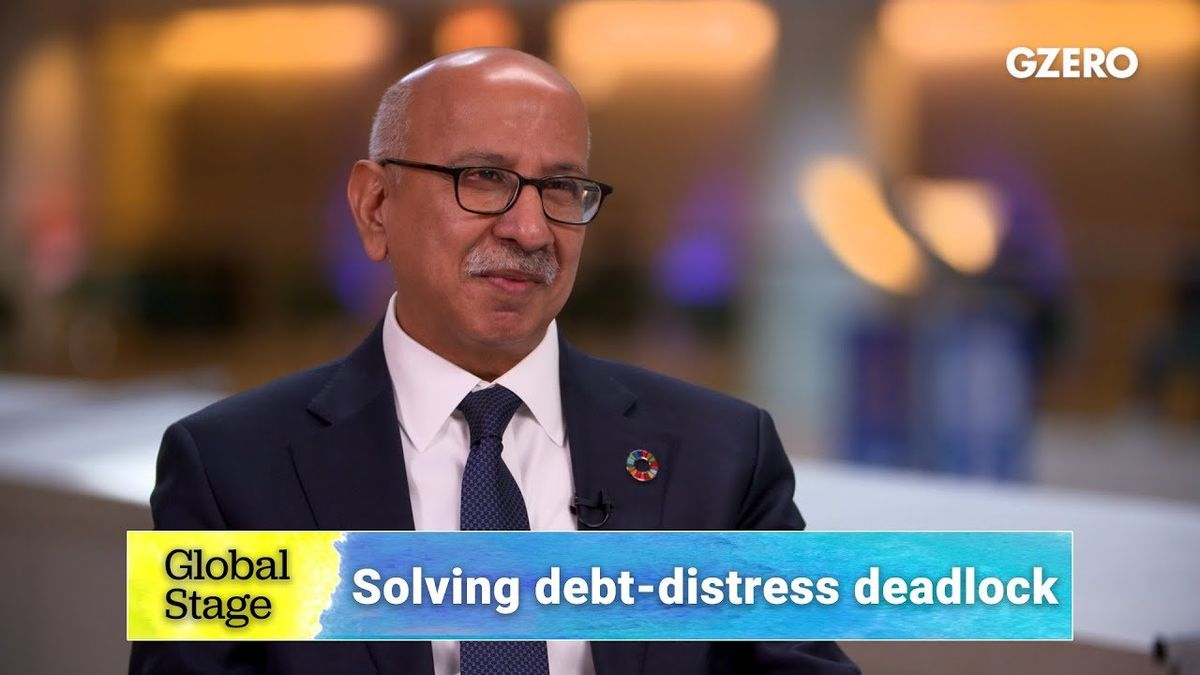Three-fifths of the world's lowest income countries are debt distressed and in danger of default. Navid Hanif, assistant secretary-general for economic development at the United Nations, tells GZERO's Tony Maciulis that we need to make debt more sustainable by restructuring it. Hanif believes multilateral development banks, such as the World Bank, should offer affordable longer-term loans with lower interest rates to allow least developed countries better opportunities to deal with crises like climate change, poverty, and educating children.
During a conversation at the World Bank/IMF spring meetings in Washington, DC, Hanif explains how a financial divide will eventually become a development divide, which is not good for the world. He explains the urgency of the growing debt problem.
However, Hanif also expresses optimism about the potential for progress coming after years of the pandemic, citing the growth in people gaining access to the internet and a renewed commitment to climate goals.

















